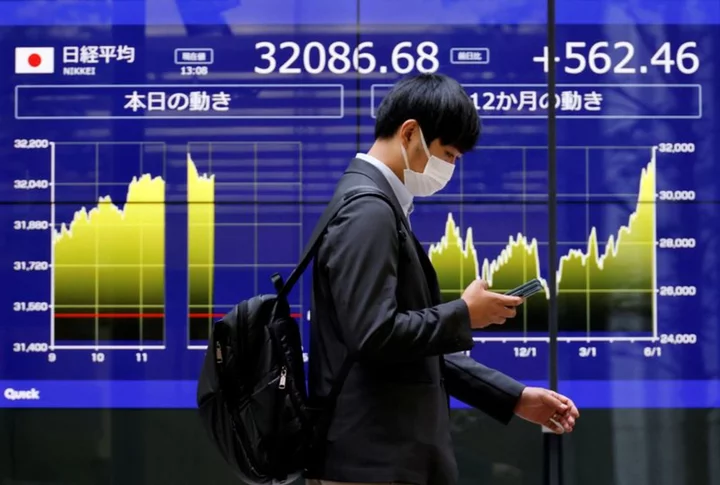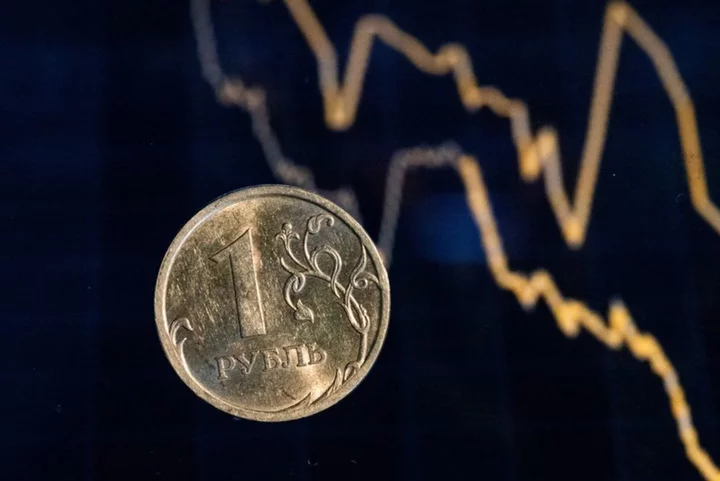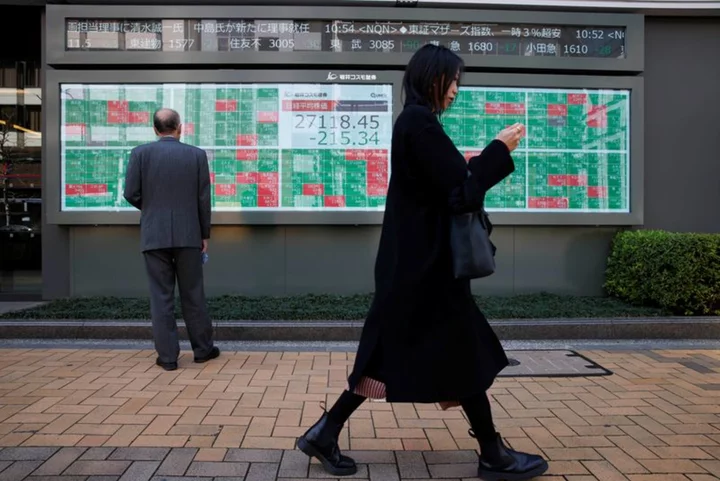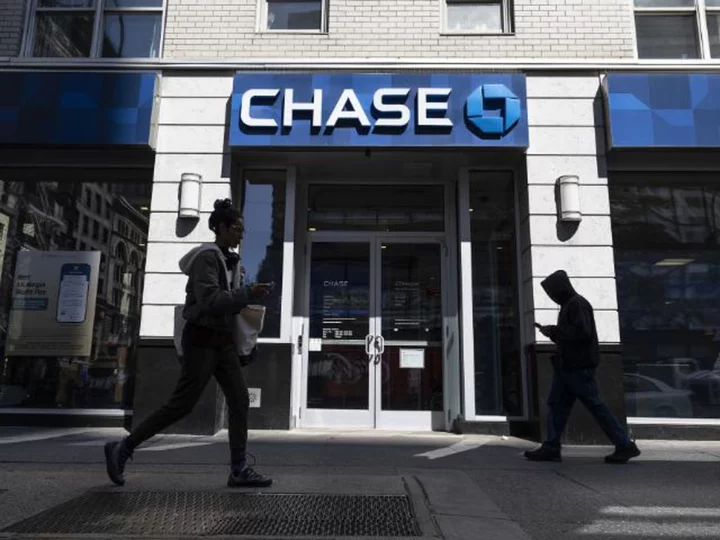By Ankur Banerjee
SINGAPORE Asian shares slid on Thursday after a surprise interest rate hike by Bank of Canada brought back fears that U.S. rates could stay higher for longer and the Federal Reserve could remain hawkish when it meets next week.
MSCI's broadest index of Asia-Pacific shares outside Japan was down 0.48%, while Japan's Nikkei fell 1%. Australia's S&P/ASX 200 index eased 0.29%.
The downbeat mood looked set to continue in Europe, with the Eurostoxx 50 futures off 0.30%, German DAX futures losing 0.31% and FTSE futures 0.06% lower.
Canada surprised markets on Wednesday by hiking its overnight rate to a 22-year high of 4.75%, with traders expecting another increase next month to cool an overheating economy and stubbornly high inflation.
The Bank of Canada (BoC) had been on hold since January to assess the impact of previous hikes.
The move from the BoC comes after Australia also stunned markets by hiking interest rates earlier this week. The Reserve Bank of Australia later warned of more rate hikes to temper rising pricing pressures.
Tapas Strickland, head of market economics at NAB, said the steps from BoC and RBA highlight that central banks aren't done with the hiking cycle. "Next week's U.S. CPI will be pivotal for whether the Fed goes in June, or skips as widely telegraphed."
Consumer inflation data on Tuesday is expected to show prices rose by 0.30% in May.
Markets are now pricing in a 64% chance of the Fed standing pat next week, compared with 78% just a day earlier, the CME FedWatch tool showed. Traders are pricing in a 25 basis point hike in July.
Economists polled by Reuters expect the Fed to not raise rates at its June 13-14 meeting, but a significant minority expects at least one more hike this year.
More than 90% of economists, 78 of 86, polled during June 2-7 said the Federal Open Market Committee would hold its federal funds rate at 5.00%-5.25%.
China shares eased 0.12%, while Hong Kong's Hang Seng Index fell 0.57%.
Data on Wednesday showed May exports in China slumped 7.5% year-on-year, the biggest decline since January and far below the 0.4% decline analysts expected.
"The weak export numbers will have observers looking for a new round of policy stimulus," Saxo Markets strategists said.
Treasury yields were stable in early Asian hours after surging overnight after the move from Canada's central bank.
The yield on 10-year Treasury notes was up 1.1 basis points to 3.795%, while the yield on the 30-year Treasury bond was up 0.5 basis points to 3.947%.
The two-year U.S. Treasury yield, which typically moves in step with interest rate expectations, was up 1.7 basis points at 4.567%.
In the currency market, the dollar index, which measures the U.S. currency against six major peers, eased 0.038%, with the euro up 0.09% to $1.0707.
The yen strengthened 0.22% to 139.80 per dollar after revised data showed Japan's economy grew more than initially thought in January-March.
The Canadian dollar rose 0.08% to 1.34 per dollar, while Turkey's lira hit a record low against the dollar as the newly re-elected government appeared to loosen stabilising measures after signalling a pivot to more orthodox policies.
U.S. crude futures fell 0.22% to $72.37 per barrel and Brent was at $76.76, down 0.25% on the day. [O/R]
Gold prices steadied on Thursday following a 1% drop in the previous session, with spot gold up 0.3% at $1,945.89 an ounce. [GOL/]
(Reporting by Ankur Banerjee; Editing by Christian Schmollinger and Sam Holmes)









